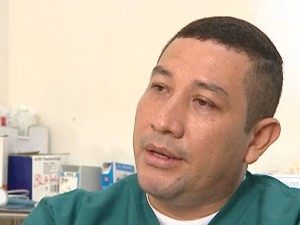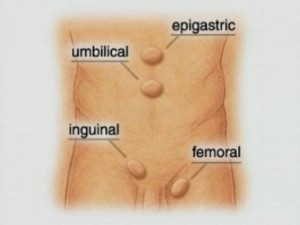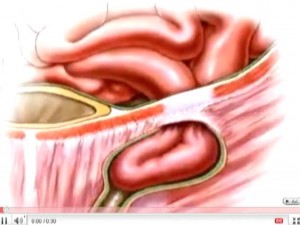Healthy Living examines a hernia
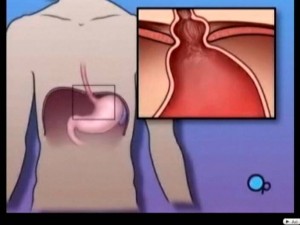 Hernias can affect anyone, male or female, young or old, healthy or unfit. It is common worldwide but luckily it can be remedied with an uncomplicated surgery. This week’s Healthy Living looks at the causes of this condition and ways to prevent it.
Hernias can affect anyone, male or female, young or old, healthy or unfit. It is common worldwide but luckily it can be remedied with an uncomplicated surgery. This week’s Healthy Living looks at the causes of this condition and ways to prevent it.
Marleni Cuellar reporting
It is one of the most frequently diagnosed conditions in Belize prompting surgeries on a daily basis to treat hernias. General surgeon, Doctor Emerson Munguia, explains what happens in the body to cause this condition.
Dr. Emerson Munguia, General Surgeon
“Hernia is a protrusion of some organ from abdominal cavity through he abdominal walls. The most common cause is congenital effects. So a lot of the patients that we have is a young population that have a congenital defect to their abdominal wall. That abdominal wall is weak so this is why the organ try to come out from the abdominal cavity.”
 The combination of pressure and weaknesses causes many different types of hernias. Some of the more common types include:
The combination of pressure and weaknesses causes many different types of hernias. Some of the more common types include:
- Inguinal hernias are the most common and usually affect more men than women. This protrusion occurs in the lower part of the abdomen, near the groin.
- Umbilical hernias are most common in babies but can affect adults. They occur in the abdominal wall near the belly button.
- Hiatial Hernia is when the stomach bulges through the diaphragm. This type of hernia is internal and cannot present with a bulge.
- Incisional hernias are common after surgery where the intestines protrude through the weakened wall.
The most common types are inguinal and umbilical hernias.
“It’s most common in males over forty years old. Remember when we get forty years old, all the tissue is getting weak this is why this is the year while most of the male patients start to have hernia. The principal symptom is pain. Local pain depending on where it is in the abdomen that the patients have the hernia. And secondary you can see some protrusion you can see by the skin when the patient is picking up something heavy or see when the patients try to push their abdomen outside some protrusion from the part where the patients get the hernia mostly in the inguinal and umbilical area.”
The protrusion, pain and discomfort are the typical symptoms. However, when there are complications associated with the hernia; there are additional symptoms.
“There is a lot of complication for instance when the intestine get trapped in that hole of the abdominal wall that hole as a part of the abdominal wall. Sometimes the intestines are trapped in the hernia and then the patients have vomiting. It only happens when the intestines is involved in the hernia and get obstruction sometimes the patient have obstruction secondary to any hernia and the patient have vomiting and in those cases the patient have complications and the patient need urgently to go to operating theatre.”
A doctor can diagnose hernia through a routine physical examination and in some cases via X-rays. Surgery is the primary treatment for hernias. With advance techniques, the procedure has become less complicated and requires little recovery time.
Dr. Emerson Munguia
“Before years ago the hernia were repaired with the same tissue try to repair the abdominal wall with making some flap with the same tissue but in those case the hernia come back month or year after the first operation. Forty-seven we call recurrent hernia. Sometimes the patient use to have one/two/three times the surgery. Fifty-seven actually now we are doing hernia repair with a special prosthesis. This special prosthesis will be used to repair the abdominal wall with this special prosthesis to repair the abdominal wall and then that hernia no come back. The problem is when people delay the operation because sometimes they wait years and years then they come to the hospital to the emergency room and they have intestinal obstruction. And those patient sometimes when we do operation as a emergency the intestine get necrosis already we have to remove the part of the intestine that have necrosis. The prognosis is usually poor and even worse if the patient is an elderly patient and then obviously the risk of the life is increasing.”
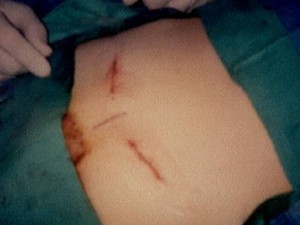 Hernias are common worldwide. To prevent a hernia from occurring; maintain a healthy lifestyle and practice caution when doing strenuous activities. Some additional tips include:
Hernias are common worldwide. To prevent a hernia from occurring; maintain a healthy lifestyle and practice caution when doing strenuous activities. Some additional tips include:
- Stay at a healthy weight for your height and body type by eating healthy and getting regular exercise especially if you are overweight or obese.
- Make fruits, veggies, and whole grains a “regular” part of your diet as they are packed with lots of fiber that will prevent constipation and straining.
- Be careful when weight lifting or lifting heavy objects.
- See your doctor when you’re sick especially if you have a persistent cough from a cold or you sneeze a lot.
- Quit smoking as smoking can cause persistent coughing, and this can strain your abdominal muscles.
